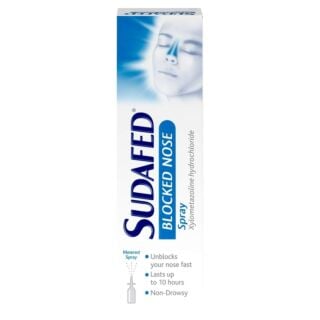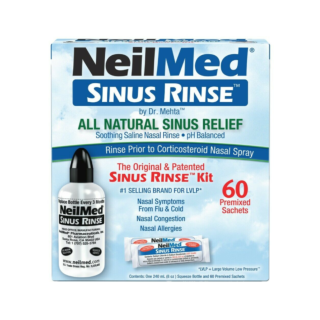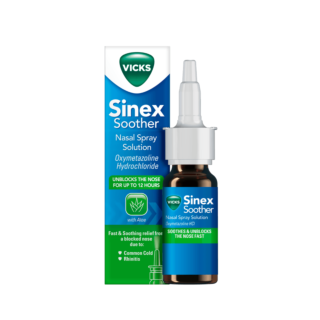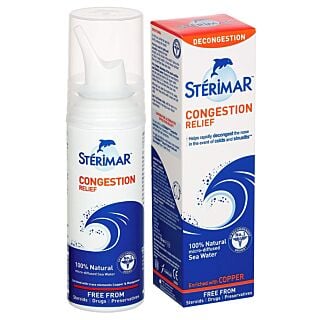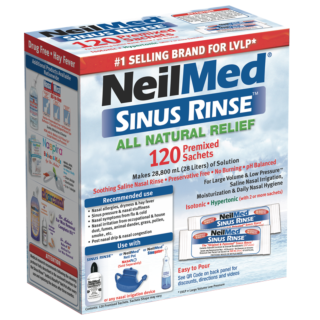What is anosmia?

Does something smell funny in here? Well, how would you know? You have anosmia!
If you’re suffering from a loss of taste or smell then you may be experiencing anosmia, but why does it happen and what can you do about it? Keep reading to find out.
What does anosmia mean?
Anosmia is the medical term for loss of smell.
When you have anosmia, you won’t be able to smell anything at all, which is pretty great if that member of your family has eaten a load of sprouts and is making your living room smell worse than an explosion at a manure factory.
On the other hand, though, it can mean that you’ll struggle to smell potential hazards, like gas leaks, fire, or out of date food, so you may need to take some precautions to keep yourself safe.

Anosmia and hyposmia are very similar in that they both affect your sense of smell, but they are a little different.
When you have anosmia you’ll experience a complete loss of smell, whereas with hyposmia you’ll experience a reduced sense of smell.
So, if you can still smell a little bit you’ve got hyposmia, not anosmia, but the causes and treatments are the same so don’t worry too much about the difference.
What are the symptoms of anosmia?
Anosmia has one main symptom, and that, of course, is the loss of smell.
However, you may also experience a change in how things taste when you have anosmia.
You may find that you can’t taste things as well as usual, you have a metallic taste in your mouth, or that your food tastes different.
This happens because your senses of taste and smell are closely linked, so a loss of one can cause problems with the other, as if you weren’t annoyed enough already!

What are the causes of anosmia or loss of smell?
There are a couple of common causes of anosmia, and most of them are relatively harmless and will clear up in time.
For example, you can experience loss of smell as a symptom of a cold, the flu, sinusitis, or an allergy such as hay fever.
These can all cause a blocked nose and congestion, which naturally affects your sense of smell.
Another common cause is nasal polyps, which are growths on the inside of your nose.
They’re usually painless and harmless but will need treatment to clear them up so you can breathe again.
Some people may also notice that they lose their sense of smell as they grow older, which is perfectly normal and just one of those things that happen as you age.

Loss of taste and smell after a cold
Losing your senses of taste and smell when you have a cold is very common, but you could also find that you lose these senses after having a cold too.
In fact, this is common with lots of viruses that cause the common cold or upper respiratory tract infections.
This is called post-infectious loss and it will normally clear up within a few weeks, just as your other cold and flu symptoms do.
Can I experience loss of smell after COVID-19 (Coronavirus)?
As we’ve just discussed, it’s common to lose your sense of smell after having a virus or upper respiratory tract infection, and as COVID-19 (also known as Coronavirus) is a viral infection it may also cause post-infectious loss of smell.
A recent press release from ENT UK and the British Rhinological Society tells us that,
“Post-viral anosmia is one of the leading causes of loss of sense of smell in adults, accounting for up to 40% cases of anosmia.
Viruses that give rise to the common cold are well known to cause post-infectious loss, and over 200 different viruses are known to cause upper respiratory tract infections.”
It goes on to state,
“Previously described coronaviruses are thought to account for 10-15% cases.
It is therefore perhaps no surprise that the novel COVID-19 virus would also cause anosmia in infected patients.”
At the time of writing this guide, there has been no information from the government to suggest that those with anosmia should self-isolate, but we’ll add an update here if this changes.

Congenital anosmia
Congenital anosmia means that you’re born without a sense of smell, and unfortunately, there’s no way to cure this at the moment.
Congenital anosmia is normally caused by a genetic condition or a faulty gene, and it can happen on its own or can be a symptom of a wider condition.
For example, congenital anosmia is a symptom of a condition called Kallman syndrome, which keeps you from starting or finishing puberty and can also cause infertility and osteoporosis.
Another condition that causes congenital anosmia is Klinefelter syndrome, which happens when boys are born with an extra X chromosome, and can also cause infertility as well as a low sex drive.

How to treat anosmia
The treatment for your anosmia will differ depending on its cause. If your anosmia is caused by a cold, the flu, an allergy, or something similar then you often won’t need to treat your anosmia at all, as it will go away by itself with your other symptoms.
However, you may find that decongestants used for cold and flu or allergy symptoms help to treat your anosmia as they help to unblock your nose.
If the cause of your anosmia is nasal polyps, your doctor may recommend steroids to shrink the growths in your nose.
This will usually begin with steroid nasal drops or sprays and may progress to steroid tablets if your polyps are particularly large or if the drops and sprays don’t work.
However, sometimes anosmia can be permanent if it’s caused by another underlying condition, so make sure to speak to your doctor if you’re concerned about your loss of smell.
Are there any natural treatments for anosmia
You may find that cleaning the inside with of your nose with homemade saltwater solution works as a natural treatment for your anosmia.
To make some for yourself, just boil some water, let it cool and measure out a pint or 568ml.
Mix a teaspoon of salt and a teaspoon of baking soda into the water and then sniff a small amount of the cooled solution into one nostril.
Let the solution run out of your nose, clearing away some of the mucous blocking your nose. Repeat the process a few more times in both nostrils.
If you don’t want to make your own solution, you can buy some from your pharmacy instead, and some of them come in nasal sprays that can make the whole process easier.
When should I see the doctor?
You usually won’t need to see a doctor if you have anosmia, but if your sense of smell doesn’t go back to normal after a few weeks you should make an appointment with your GP.
They’ll be able to work out the cause of your anosmia and recommend a suitable treatment that will help to clear it up.
They may also refer you for some testing which could help to determine what caused the problem in the first place, so you can tackle it at its source.

Well now you know what it is that’s keeping you from stopping to smell the roses, or making that delicious bacon sandwich taste so boring.
Remember, if you’re worried about your sense of smell, make sure to speak to your doctor so they can check what’s going on in your nose and help to clear it up.

